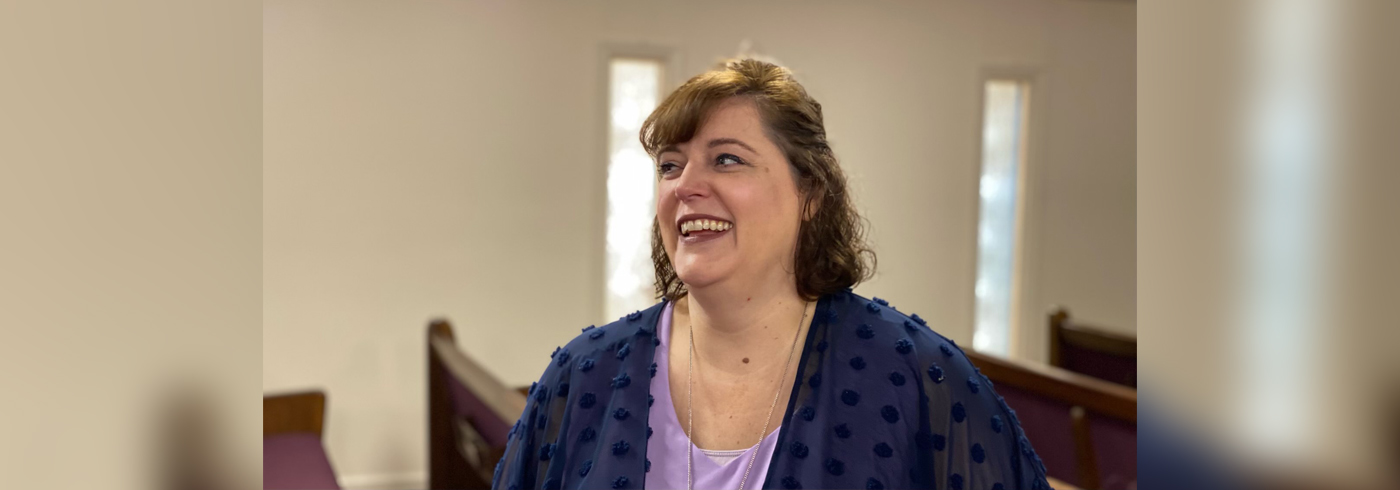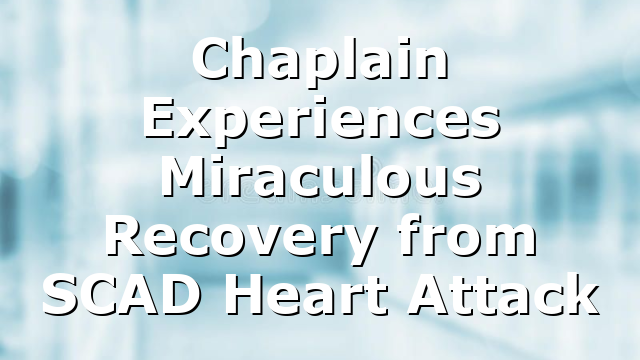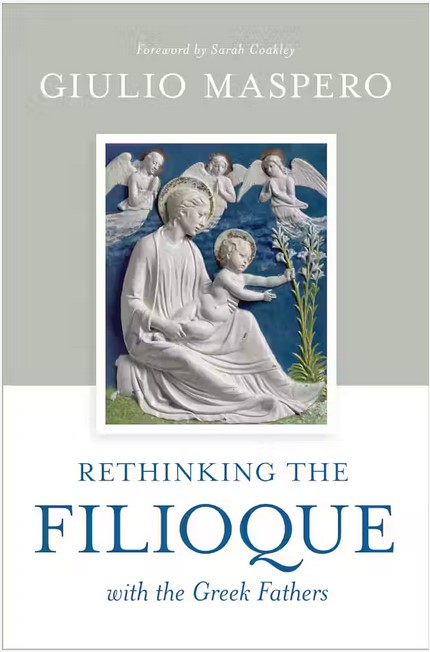Chaplain Experiences Miraculous Recovery from SCAD Heart Attack
 Chaplain DeAnna Smith suffered a spontaneous coronary artery dissection (SCAD) heart attack, which is often terminal, but had a miraculous recovery that amazed the medical staff.
Chaplain DeAnna Smith suffered a spontaneous coronary artery dissection (SCAD) heart attack, which is often terminal, but had a miraculous recovery that amazed the medical staff.

Chaplain Experiences Miraculous Recovery from SCAD Heart Attack
Chaplain DeAnna Smith, married, the mother of three, and just 47 years old was finishing up her gym workout at about 8 a.m. on May 16 when her heart suddenly stopped beating and she blacked out as she went into full cardiac arrest.
“I was putting weights up when it happened and they tell me my shirt got hung up on a bar when I blacked out, and so I was suspended in mid-air,” Smith says. “But that was a good thing — it kept me from hitting my head on the ground or another piece of equipment.”
Smith, who was endorsed by AG U.S. Missions Chaplaincy Ministries as a hospital chaplain in 2019, says she had just started going back to the gym a few weeks prior, having had stopped going due to COVID.
“I was told that I was turning blue and foaming at the mouth,” Smith says, “but a gentleman helped me to the ground and a nurse, who happened to be at the gym, started doing CPR. Then the manager used a defibrillator on me to restart my heart.”
By the time the defibrillator was used, Smith had been unresponsive for about 12 minutes, if not longer.
“I woke up briefly and saw four faces hovering over me,” she recalls. “It must have been the EMS technicians, but I was paralyzed — I couldn’t move or talk.”
Finally, the technicians had her stable enough load her into the ambulance, where she remembers hearing one of them calling in her condition to the hospital.
“I heard someone saying, ‘Female down, non-breathing, no pulse, CPR initiated, defibrillator activated . . .’” she says. “It took me a minute to realize that he was talking about me!”
When Smith arrived in the Grandview Medical Center ER in Birmingham, Alabama, she regained consciousness and could communicate. Her first request was for a chaplain she knew and her first concern was potential brain damage.
“But I was evaluating myself, and I felt like I was thinking and speaking comprehensibly,” she says.
Smith, feeling more assured, remained calm and fell into her role as a chaplain — greeting people as they entered the room, trying to set people at ease, she even took time to encourage a floor chaplain in her work.
Yet, the road was far from clear for her. She was wheeled up to have a cardiac unit to have a catheterization where they discovered her heart attack was caused by a relatively rare SCAD — spontaneous coronary artery dissection.
A SCAD is when an inner wall layer of the artery separates, but does not detach, from the artery inner wall. This can deflect/reroute blood from going to the heart and forming a pool of blood between the walls creating a hematoma which can cut off circulation and/or create a blood clot; the flap (loosened wall layer) can also partially or fully block the artery. Either way (or both) often results in cardiac arrest. The victims are most frequently otherwise healthy women in their 30s and 40s. It’s not uncommon for a SCAD to be terminal.
“So, I’m on the table and they’re getting ready to perform a balloon angioplasty (to widen/open the vein) and insert a stent,” Smith explains, “when suddenly I go into full cardiac arrest for the second time.”
Smith says she could hear someone yelling “Cough! Cough!” but again, she didn’t immediately connect that the person was talking to her. The next thing she knew, someone punched her in the sternum, causing her to cough and her heart to start beating again.
“The doctors then decided that it was too dangerous to attempt to put a stent in at that time,” Smith says.
For the next three days, Smith was in the cardiac ICU as doctors worked to regulate her blood pressure and heart rhythm, while also placing her on medications designed to minimize the risk of recurrence.
However, never an excuse maker, Smith, who is working on her doctorate, says that first night she joined her doctoral class via Zoom, surprising her instructor. Her classmates then each individually prayed for her.
Chad Payne, lead pastor at New Life AG in Woodstock, Alabama, since 1999, has known Smith for about seven years. She and her husband, James McLeod, have been attending New Life for about four years.
“She called me from the hospital,” Payne says, his voice still fresh with surprise. “She told me all what happened . . . she has recovered remarkably quickly.”
Smith did have quite a bit of discomfort while in ICU, but it wasn’t from the cardiac arrest itself. Instead, she had several broken ribs due to the CPR she was given, which is typical when CPR is performed correctly.
On the third day, Smith was permitted to get up and start walking around. Her recovery was astounding the medical staff. Doctors opted not to do surgery and allow the dissection to heal on its own.
“I was looking around and all the other people in the ICU were intubated,” Smith says. “A nurse told me that I really was a miracle — they had expected me to be intubated and fighting for my life . . . one of the nurses who has assisted me when I arrived in the ICU got up, hugged me (gently), and said, ‘You are a whole miracle!’
“The ‘whole’ had me laughing,” Smith says, “but it is pregnant with truth!”
Today, DeAnna and James still serve at New Life. She also continues to serve as pastor of an assisted living congregation where she speaks twice a month, lead Bible studies, teach a Bible club on Wednesday evenings, while also continuing her doctoral program. In her words, she’s doing “phenomenally well.”
Payne says Smith is gifted in pastoral care, is a wonderful and scholarly teacher, and a thoughtful preacher.
“She’s very laid back, low key, and easy to talk to,” Payne says. “She’s a calming presence when she’s with people.”
“I personally didn’t have any significant spiritual encounter through this,” Smith adds, “but God is working in the lives of other people because of it, especially among my family . . . God is using it for others to question their own spiritual lives . . . I told my son, we always have to be ready because we’re not promised the next breath.”
Payne says that the miracle in Smith’s life has been an encouragement to the church as well.
“We’ve had some tragedies take place over the last year or so (in the church family),” he says. “What took place for DeAnna has been a rally moment — an opportunity to give God praise for saving her life, and an encouragement to other families to see what God did for her.
“It’s clear that God’s hand is on DeAnna’s life and I’m excited to see what God is going to do through her,” Payne continues. “Her healing is an indication to me of God's touch and that He has preserved her for a purpose.”
Smith shares her point of view on the goodness of God to those who ask about her experience, including her husband.
“I told James, even if he would have buried me that week, God is still good,” she says. “Even if we had not received a miracle, God is good; He does not change.”
“I was putting weights up when it happened and they tell me my shirt got hung up on a bar when I blacked out, and so I was suspended in mid-air,” Smith says. “But that was a good thing — it kept me from hitting my head on the ground or another piece of equipment.”
Smith, who was endorsed by AG U.S. Missions Chaplaincy Ministries as a hospital chaplain in 2019, says she had just started going back to the gym a few weeks prior, having had stopped going due to COVID.
“I was told that I was turning blue and foaming at the mouth,” Smith says, “but a gentleman helped me to the ground and a nurse, who happened to be at the gym, started doing CPR. Then the manager used a defibrillator on me to restart my heart.”
By the time the defibrillator was used, Smith had been unresponsive for about 12 minutes, if not longer.
“I woke up briefly and saw four faces hovering over me,” she recalls. “It must have been the EMS technicians, but I was paralyzed — I couldn’t move or talk.”
Finally, the technicians had her stable enough load her into the ambulance, where she remembers hearing one of them calling in her condition to the hospital.
“I heard someone saying, ‘Female down, non-breathing, no pulse, CPR initiated, defibrillator activated . . .’” she says. “It took me a minute to realize that he was talking about me!”
When Smith arrived in the Grandview Medical Center ER in Birmingham, Alabama, she regained consciousness and could communicate. Her first request was for a chaplain she knew and her first concern was potential brain damage.
“But I was evaluating myself, and I felt like I was thinking and speaking comprehensibly,” she says.
Smith, feeling more assured, remained calm and fell into her role as a chaplain — greeting people as they entered the room, trying to set people at ease, she even took time to encourage a floor chaplain in her work.
Yet, the road was far from clear for her. She was wheeled up to have a cardiac unit to have a catheterization where they discovered her heart attack was caused by a relatively rare SCAD — spontaneous coronary artery dissection.
A SCAD is when an inner wall layer of the artery separates, but does not detach, from the artery inner wall. This can deflect/reroute blood from going to the heart and forming a pool of blood between the walls creating a hematoma which can cut off circulation and/or create a blood clot; the flap (loosened wall layer) can also partially or fully block the artery. Either way (or both) often results in cardiac arrest. The victims are most frequently otherwise healthy women in their 30s and 40s. It’s not uncommon for a SCAD to be terminal.
“So, I’m on the table and they’re getting ready to perform a balloon angioplasty (to widen/open the vein) and insert a stent,” Smith explains, “when suddenly I go into full cardiac arrest for the second time.”
Smith says she could hear someone yelling “Cough! Cough!” but again, she didn’t immediately connect that the person was talking to her. The next thing she knew, someone punched her in the sternum, causing her to cough and her heart to start beating again.
“The doctors then decided that it was too dangerous to attempt to put a stent in at that time,” Smith says.
For the next three days, Smith was in the cardiac ICU as doctors worked to regulate her blood pressure and heart rhythm, while also placing her on medications designed to minimize the risk of recurrence.
However, never an excuse maker, Smith, who is working on her doctorate, says that first night she joined her doctoral class via Zoom, surprising her instructor. Her classmates then each individually prayed for her.
Chad Payne, lead pastor at New Life AG in Woodstock, Alabama, since 1999, has known Smith for about seven years. She and her husband, James McLeod, have been attending New Life for about four years.
“She called me from the hospital,” Payne says, his voice still fresh with surprise. “She told me all what happened . . . she has recovered remarkably quickly.”
Smith did have quite a bit of discomfort while in ICU, but it wasn’t from the cardiac arrest itself. Instead, she had several broken ribs due to the CPR she was given, which is typical when CPR is performed correctly.
On the third day, Smith was permitted to get up and start walking around. Her recovery was astounding the medical staff. Doctors opted not to do surgery and allow the dissection to heal on its own.
“I was looking around and all the other people in the ICU were intubated,” Smith says. “A nurse told me that I really was a miracle — they had expected me to be intubated and fighting for my life . . . one of the nurses who has assisted me when I arrived in the ICU got up, hugged me (gently), and said, ‘You are a whole miracle!’
“The ‘whole’ had me laughing,” Smith says, “but it is pregnant with truth!”
Today, DeAnna and James still serve at New Life. She also continues to serve as pastor of an assisted living congregation where she speaks twice a month, lead Bible studies, teach a Bible club on Wednesday evenings, while also continuing her doctoral program. In her words, she’s doing “phenomenally well.”
Payne says Smith is gifted in pastoral care, is a wonderful and scholarly teacher, and a thoughtful preacher.
“She’s very laid back, low key, and easy to talk to,” Payne says. “She’s a calming presence when she’s with people.”
“I personally didn’t have any significant spiritual encounter through this,” Smith adds, “but God is working in the lives of other people because of it, especially among my family . . . God is using it for others to question their own spiritual lives . . . I told my son, we always have to be ready because we’re not promised the next breath.”
Payne says that the miracle in Smith’s life has been an encouragement to the church as well.
“We’ve had some tragedies take place over the last year or so (in the church family),” he says. “What took place for DeAnna has been a rally moment — an opportunity to give God praise for saving her life, and an encouragement to other families to see what God did for her.
“It’s clear that God’s hand is on DeAnna’s life and I’m excited to see what God is going to do through her,” Payne continues. “Her healing is an indication to me of God's touch and that He has preserved her for a purpose.”
Smith shares her point of view on the goodness of God to those who ask about her experience, including her husband.
“I told James, even if he would have buried me that week, God is still good,” she says. “Even if we had not received a miracle, God is good; He does not change.”


